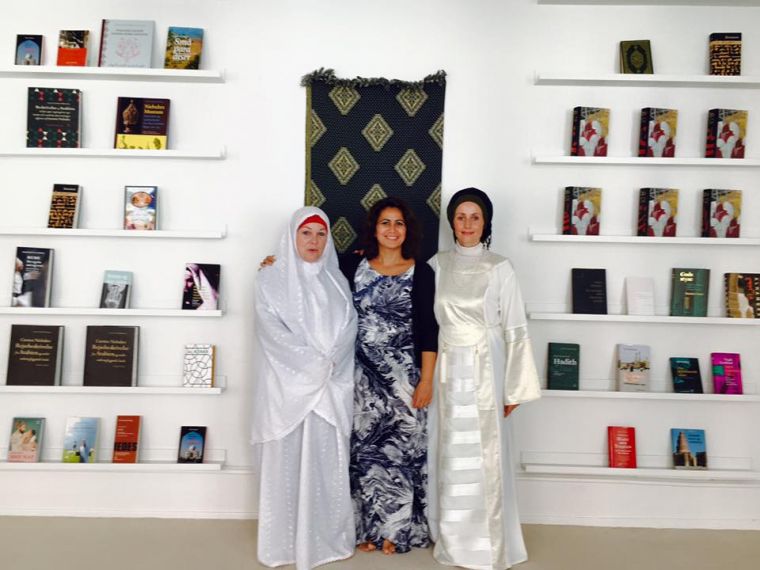Denmark: Friday prayers held at Scandinavia's first female-led mosque

The first female-led mosque in Scandinavia yesterday held its first Friday prayers.
The historic occasion was attended by more than 60 women, the Guardian reported. There are very few women-led mosques in the world, and none in Scandinavia apart from the Mariam mosque in Copenhagen.
The mosque opened in February, but until now had not been able to hold Friday prayers, an important part of the Muslim calendar.
The service was led by two female imams, Sherin Khankan and Saliha Marie Fetteh, and the call to prayer was sung by a woman.
Fetteh gave a sermon on the issue of "women and Islam in a modern world".
Khankan told the Guardian the mosque hopes to "challenge patriarchal structures within religious institutions".
"Islam has been male-dominated, women are still not equal in Catholicism and Judaism, and were only ordained in the Protestant faith [in Denmark] in 1948," she said.
"It is possible to change patriarchal structures but it's a long journey and we have met opposition."
However, the women have also had a "very positive reaction" from people around the world, especially in Arab countries, Khankan added. There is "no valid religious criticism of us," she said. "We are on safe theological ground."
"We represent a modernist, spiritual approach to Islam. We are seeking to create an alternative voice, without delegitimising others. We want the Mariam mosque to be a place where everyone can come, and we can flourish together. What happens in a mosque goes way beyond the mosque itself – it affects society."
Last year, the first all-female mosque in the US was opened.
The Women's Mosque of America in downtown LA seeks to "empower Muslim women and girls and better the Muslim and American communities at large."
Founders Hasna Maznavi and Sana Muttalib said they wanted to encourage women to participate in all areas of life at the place of worship, including the call to prayer and the sermon.
"I want every woman to experience what it feels like to learn from a female religious authority in the mosque," Maznavi said.











